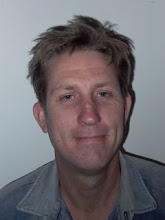"The intuitive mind is a sacred gift and the rational mind is a faithful servant.We've created a society that honors the servant and has forgotten the gift." Albert Einstein
We've lost direction with economic rationalism; by focusing on ends we have neglected the means. The best way to correct this imbalance is through education. By creating self-directed learners we can supply the skilled operators of the networked world we have been building. Through the directed use of these new tools we can address the roots of many of the problems we now encounter, such as global warming, pollution, disenfranchised workers, power imbalances, financial crises. The following model will bring it's own problems and we need to be mindful of these, but they will be emergent and predicting them will be difficult, so I will take a scenario casting approach in thinking about them.
The printed book has ultimately turned us into robots - standardised our education, split our thinking into ever narrower, disconnected channels, building on the norm and ostracising the rebel. This is disaster in a networked world - this laid the conditions for the GFC to incubate, the smartest men in the room created a circle-mill in their room of mirrors. Mono-cultures collapse, this is as true of American hegemony as it was of the Roman empire. They feed so voraciously in their arrogance that they starve themselves with their growing appetites on a limited larder. The wisdom of the crowd only works with a true diversity of views, and this is what we need to cultivate in the minds of our learners. We need to grow the ideas on which we will harvest our future feasts.
So what does an holistic education look like?
I'm addressing higher education here, Androgogy, or the practice of adult learning - so I assume that the foundational skills of reading, writing and arithmetic have been laid, along with socialisation and little bit of life experience to build on. In my benevolent dictatorship I'd have all school leavers embark on some sort of Grand Tour/Inter/National Service design for a couple of years to help this and to direct their future work/discover their passion(s).
Anyway - what does one need to become a life-long self-directed learner?
Information Literacy - how to find and authenticate information
- Accessing knowledge
- Interacting with knowledge
- Forming knowledge
And then how to assess this kind of individualised learning? Well a big focus would be on a continuing formative feedback loop from the guides and their peers, tracking their progress. Ultimately you would need to build some sort of 'portfolio' which is the only thing open to a summative assessment, which would be conducted in a conversation with all of the above and the wisest of the wise, be they department heads, deans, etc.
So its a massive investment in time and resources. Can we pull it off and still make it inclusive? Do we bring back a mentoring scheme where postgraduates are chosen as learning guides by undergraduates to address some of these problems?




No comments:
Post a Comment